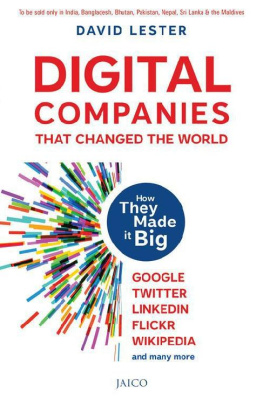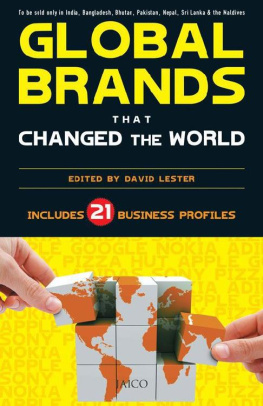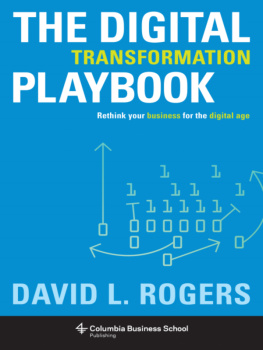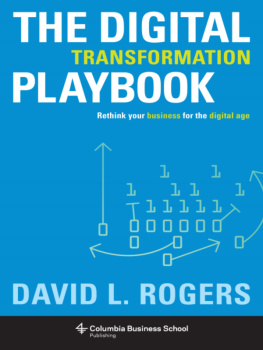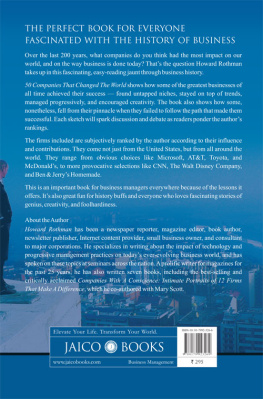Published by Jaico Publishing House
A-2 Jash Chambers, 7-A Sir Phirozshah Mehta Road
Fort, Mumbai - 400 001
www.jaicobooks.com
Crimson Publishing
Original English language edition published by
Crimson Publishing
Westminster House, Kew Road
Richmond, Surrey, TW9 2ND, UK
All Rights Reserved.
To be sold only in India, Bangladesh, Bhutan,
Pakistan, Nepal, Sri Lanka and the Maldives.
Digital Companies That Changed the World
ISBN 978-81-8495-379-4
First Jaico Impression: 2012
No part of this book may be reproduced or utilized in
any form or by any means, electronic or
mechanical including photocopying, recording or by any
information storage and retrieval system,
without permission in writing from the publishers.
Acknowledgements
W
e must first thank all the founders of the businesses featured who consented to give detailed, frank and insightful interviews about the very earliest days of their companies. Many revealed stories and information that have not been shared publicly before.
Many early-stage investors in these brands, founding team members, and other associates of the founders were also generous in sharing their memories and knowledge of the fledgling brands we feature in this book.
And we must also thank the companies, many of which are no longer run or owned by the original founders. These businesses, in numerous cases, provided additional supporting information and photography that they have kindly agreed to let us use here.
Finally, it is appropriate to thank those at Crimson Publishing, who have spent a considerable amount of time putting this book together including Ian Wallis, Lucy Smith, Dawn Wilkinson and Beth Bishop.
Introduction
I
am writing this days after Facebook has gone public, valued by the stock market at around $100 billion (64.6 billion). That means this eightyear-old company is worth roughly 12 times more than long-established UK giants Marks & Spencer or Sainsburys, and three times Barclays Bank.
Perhaps even more breath taking is that a few weeks ago Facebook spent around $1 billion (646.1 million) buying a one-year-old business which had no revenue at all.
Clearly, we are living in a time when it is possible to create global businesses and very dramatic riches faster than anyone has ever been able to do before. It is not merely possible, but even likely that some of you reading this book will be setting up your own ventures which will themselves be worth vast amounts in one year's time. I hope this book will be helpful to any of you thinking about doing just that.
I suspect, though, that most of you reading this will either be seeking more modest goals for your own business, or will simply be fascinated to learn how some of this incredible success has happened so very quickly. This book has been commissioned with you all in mind, whichever category you fall into. How They Started: Digital is part of a successful series. We have already produced other How They Started books, telling the amazing and often remarkable stories of how ordinary people can take an idea and develop it into a thriving, successful company. The world is changing faster than ever before due to what can only be described as a digital revolution. And as surely the most fundamental shift to all nations' economies, we felt compelled to produce a How They Started book dedicated to the exciting array of digital businesses out there.
We have been very subjective in the companies we have selected here, aiming to offer variety. We have included a number of already enormous businesses, as well as several smaller, fast growing ventures. We have inevitably included many from North America, which unquestionably leads the world in so much of the digital world today, but have made a point of including many businesses thriving outside that region, too. Spotify is perhaps the largest European-founded company featured here.
We made a decision early on in our research not to write about Facebook primarily because there is already so much coverage of it in the media that a chapter here would add little to anyone interested. However we are delighted to feature a number of extremely well-known names, most notably Twitter, Dropbox, TripAdvisor and Zynga, which are in the same category of 'hyper-success'. And for comparison and balance we have also included some slightly older digital businesses, such as Electronic Arts, Google, eBay and Microsoft.
We have had generous access, sometimes extraordinarily so, to one or more of the founders of almost all companies featured here. We are very grateful to all those who helped us in our research. We have worked hard to go beyond the very basic information on each company, aiming to bring you the inside story about what really went on, and why each company evolved the way it did.
As you read through these stories, you are sure to be struck by the fact that anyone with a good idea and the right drive can start a company today, more easily than ever before. It is easier to start, raise funds, get advice and expand across the world than it has ever been. This is already leading to many more people setting up on their own, and that seems certain to continue. The website I created, www.startups.co.uk, which is the UK's leading site supporting people setting up their own business, is seeing not only higher numbers of readers than ever, but also more and more services aimed at helping people set up. And the great news is that this applies to anyone setting up a small, part-time business, as a hobby or supplementing either student life or a meagre pension, as much as for the few aiming for something far more ambitious.
These are great times to start a business, whoever you are. While it is clear many of the businesses featured here have been started by 'software engineers' or young people brought up on all things digital, there are plenty of digital businesses featured here started by non-techies: Neon Play, the UK-based app developer, Wonga and Match.com for example.
I have been struck, too, by the degree to which the elite of California's Silicon Valley have been instrumental in the extreme growth enjoyed by most of the recent web-based mega-brands. The business press both in Europe and North America have featured numerous articles about the networks and influence of LinkedIn and Netscape's respective founders Reid Hoffman and Marc Andreeson, who have subsequently invested their accumulated wealth in or sat on the board of a staggering number of other ventures. Facebook's IPO (Initial Public Offering the process of floating their shares on a Stock Exchange) is being widely predicted to lead to a new crop of exciting digital start-ups from Facebook employees made rich through valuable share options. For many companies a recommendation from one of these elite influencers has been a notable milestone in their gaining traction.


